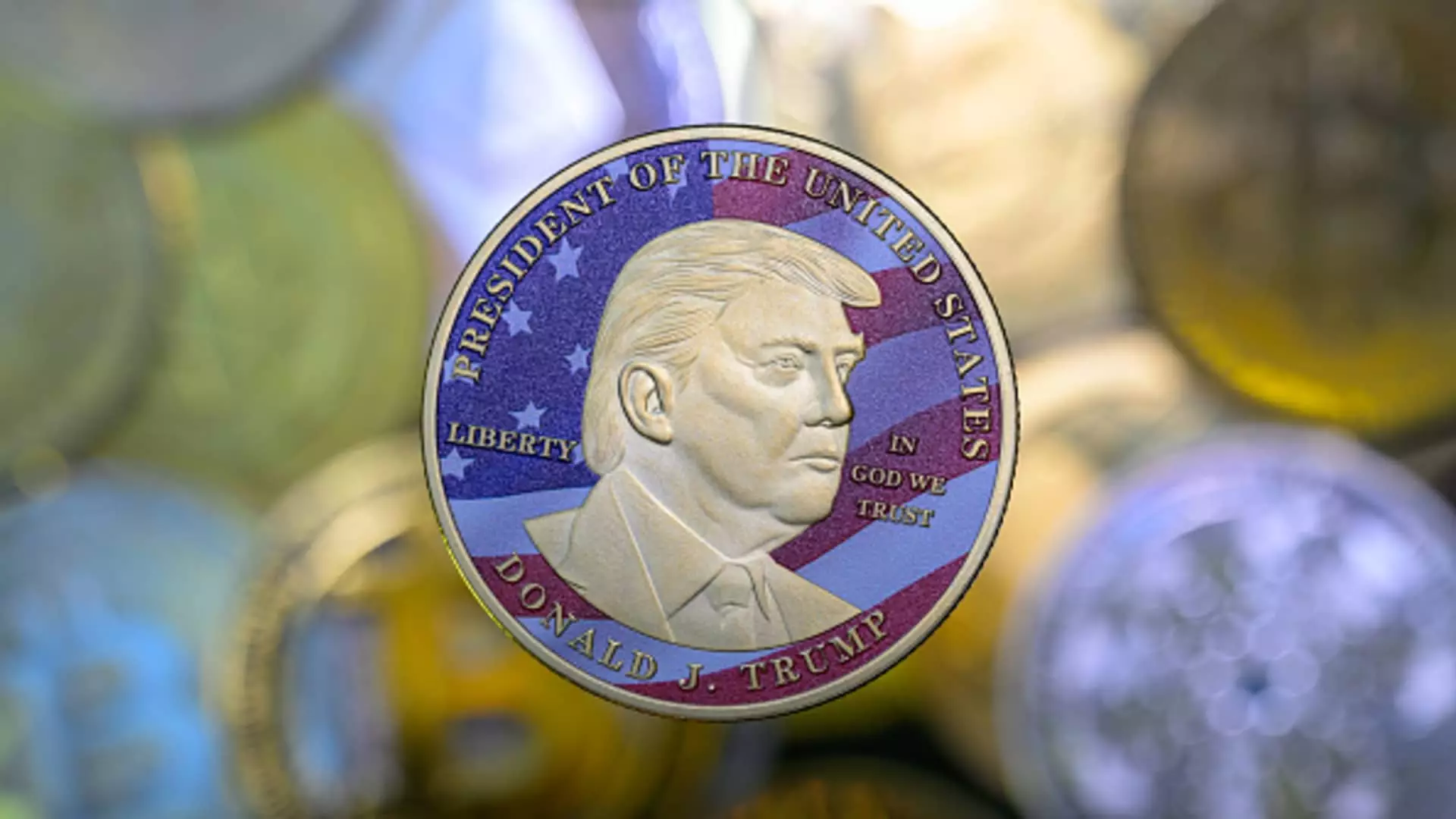The recent controversy surrounding President Donald Trump’s promotional dinner with top holders of his meme coin, $TRUMP, raises serious ethical questions that cannot be ignored. As Senators Adam Schiff and Elizabeth Warren voice their concerns, warning of potential “pay-to-play” corruption, it becomes increasingly evident that this episode is emblematic of a troubling trend in modern politics. The political landscape, already marked by a growing disconnect between public service and private profit, is now at the mercy of digital currency gamesmanship, leading to a potential clash between legal permissibility and moral ambiguity.
At the heart of this controversy is a presidential invitation that offered exclusive access to those holding significant investments in the $TRUMP coin. This rushed cascade of events—culminating in a 50% spike in the coin’s value following Trump’s announcement—suggests a worrying intertwining of governmental influence and personal financial gain. Political office should not serve as a marketplace where influence can be “purchased” through financial investment; yet, this incident poses the question of whether Trump is crossing that ethical line.
The Problem with Profiting from Public Office
The senators contend that the nature of this invite blurs the lines of ethical conduct. By granting exclusive dinners to the highest investors, Trump is not only offering privileged access to political power but is also potentially leveraging his position for personal financial gain. Such actions inadvertently contribute to the erosion of public trust. If top investors are rewarded with proximity to power solely based on their financial contributions, it creates a dangerous precedent where monetary influence overrides democratic principles.
Moreover, critics point to the potential implications of foreign investments in the $TRUMP coin, suggesting that individuals with ties to foreign exchanges or banned crypto platforms may be seeking to curry favor with the U.S. government through financial means. By engaging in such activities, Trump risks opening the floodgates for corporate interests to undermine national integrity and ethical formations that have long held democratic institutions in check.
The Ineffectiveness of Oversight Bodies
Senators Schiff and Warren have penned a letter to the Office of Government Ethics (OGE), urging an investigation into whether Trump has violated communal ethical standards through this venture. However, the effectiveness of such oversight bodies has often been called into question, particularly given the OGE’s lack of enforcement power when it comes to a sitting president. This raises an unsettling dilemma: how can we expect accountability in high office when those responsible for oversight are themselves constrained by the very structures they are meant to critique?
Despite the urgency of the situation, the likelihood of meaningful inquiries into Trump’s dealings seems sparse. With both chambers of Congress and the White House firmly under Republican control and an ethics director appointed by the president himself, the mechanism designed to uphold integrity is all but rendered ineffective. This mounting inaction hints at a systemic failing, where political affiliations supersede principled governance.
The Precarious Relationship Between Politics and Cryptocurrency
Amid this chaos, Trump’s association with cryptocurrency extends beyond meme coins. The Trump family recently announced plans to launch a stablecoin through their World Liberty Financial project, further entrenching their engagement in a financial frontier typically laden with risks and regulatory challenges. As one of the most polarizing figures in contemporary politics, the last thing we need is an already unapologetic President further entangling his influence in volatile market trends.
What makes this even more alarming is that $TRUMP’s meteoric trajectory catapulted it into an arena where it has reportedly generated over $350 million in fees for entities linked to Trump and his circle. The notion that political power is being commodified sends shockwaves through the very fabric of democracy.
A Call for Vigilance in a New Era of Political Finance
As citizens, we must remain vigilant against emerging forms of corruption, especially as they occupy the digital landscape that has come to encapsulate innovation and freedom. We are not simply witnessing a battle over financial instruments; it’s a storyline intricately woven with ideals regarding ethics in governance. The intertwining of politics and cryptocurrency necessitates a proactive discourse that pushes back against the normalization of transactional politics.
As we navigate this treacherous terrain, the onus lies on both political figures and constituents to demand a greater commitment to integrity, transparency, and ethical standards in leadership. Only then can we hope to counter the erosive tide of corruption defined by profit-driven motives, ensuring that democracy as we understand it remains intact.

